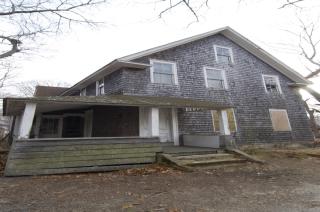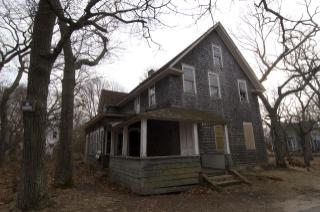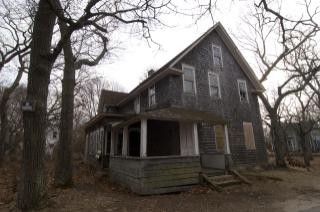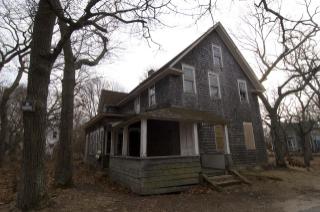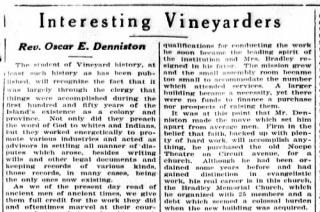
Denniston House
2008
Despite lingering concerns about the size, density and effect on a residential neighborhood, the Martha’s Vineyard Commission on Thursday approved the multifaceted Bradley Square project at the corner of Dukes County and Masonic avenues in Oak Bluffs by a nearly unanimous vote.
A $5.1 million plan to convert the old Bradley Memorial Church off Masonic avenue in Oak Bluffs into a mixed use building with affordable housing and artist work space has quickly become a heated neighborhood controversy.
On one side is a group of longtime residents of Dukes County avenue and the surrounding area who are proud of their largely blue-collar neighborhood. On the other is a group of town and Island officials touting a dense plan to redevelop property that is the site of the first African-American church on the Island.
As many as 100 people attended an often emotional public hearing held by the Martha’s Vineyard Commission on Thursday, March 20 to hear a proposal to transform the old Bradley Memorial Church in Oak Bluffs into a multi-use building with affordable housing, artists’ workshops and a museum.
It may be hard to tell now, but there was a time when the Bradley Memorial Church was arguably the spiritual and social center of Oak Bluffs.
1942
Rev. Oscar E. Denniston, founder of the Bradley Memorial Church, Oak Bluffs, and pastor for the past forty years died at Martha's Vineyard Hospital early Tuesday morning, following a brief confinement which came at the end of some nine years of gradually failing health. He would have been 67 years of age on April 5. He had devoted his life to religious teaching.

